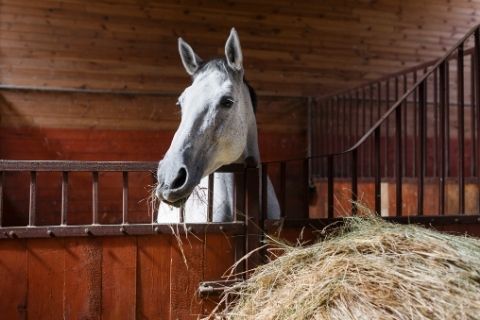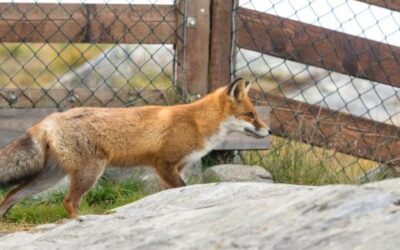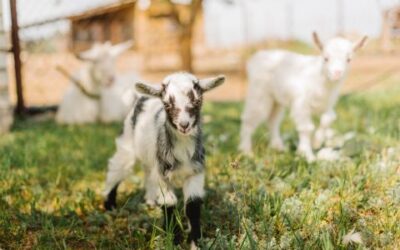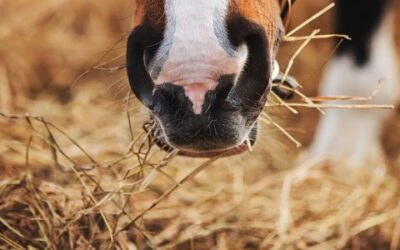
When you aren’t eating properly, you might feel a little bit “hangry” throughout the day or sluggish when overeating. Your horses experience very similar feelings with an unbalanced diet! Because a horse’s digestive system is so fragile, there are many typical behavioral problems that may signify an issue with their diet. Some horse owners tack bad behavior onto being the horse’s fault, but in most cases this isn’t the cause at all. Knowing how your horse’s diet affects their behavior will separate you from other horse owners.
A Horse’s Natural Behavior
Horses in their natural habitat will graze and socialize all day while in their herd. Wild horses don’t go out of their way to chew wood or crib—these harmful behaviors are learned. often because of a poor diet. The free environment that a horse ideally wants to live in is far different from the environment of an enclosed barn. Not only is a horse limited in the times that they can eat and play, but also they are confined in a stall where they can’t run from stress-inducing predators.
Wood Chewing
Your fencing, stall doors, and stall walls are not a tasty snack for horses. The splinters can cause health issues if swallowed, their dental health will suffer, and the damage to your barn or pasture can be a major hassle to fix. When you notice your horse has started chewing wood you need to do something about it. A horse that has started chewing on your barn generally requires more fiber in their diet. High fiber horse forage is perfect for a wood-grazing horse.
If they continue to chew wood even after you’ve altered their diet, try increasing the number of meals you give them in the day. It may be okay to keep the same amount of food so long as it fills them up, but your horse needs to replicate the feeling of grazing even while stuck in the barn. As a last solution for wood grazers, try installing metal or rubber on top of wooden barn fixtures.
Cribbing
One of the most unusual behaviors found in horses is cribbing. Cribbing is when a horse braces their mouth against an upright structure—like a fence—and flexes their neck in a way that sucks in air. Because horses don’t crib in their natural habitat, it’s believed this behavior is learned from boredom or improper diets. Giving horses plenty of pasture time or roughage that takes time to chew will prevent horse boredom. Cribbing straps or masks can help prevent it, but don’t have a 100% success rate.
These are just two of the more confusing ways how your horse’s diet affects their behavior, the rest may be more similar to human behavior than you might think. Digestive issues caused by sugary grains can cause grumpiness and will require you to supplement them with more fibrous feed. Keep an eye on your horses’ digestion and you’ll learn more about their sour mood.




